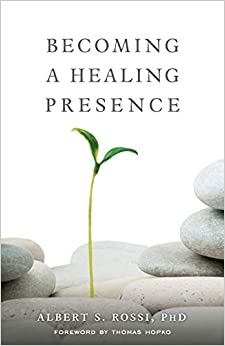This Tuesday we will be wrapping up Dr. Albert S. Rossi’s book Becoming a Healing Presence and reading through the chapter “Embracing Ambiguity.” The purpose of this final chapter is to open ourselves up to ambiguity and to be able to say “I don’t know.” Part of being a healing presence and living in the present moment requires us to understand that, most of the time, we simply do not understand. Dr. Rossi writes about ambiguity and unknowing from an Orthodox perspective; however, embracing ambiguity is a primary characteristic of our Anglican heritage. In the opening chapter of his book Orthodoxy, G.K. Chesterton (1874-1936), the great Anglican writer and eventual convert to Roman Catholicism, states that logic and reason breed insanity and that it is the madman who has lost everything but his reason. Chess players go mad, poets do not. For Chesterton, in order to be an orthodox Christian (defined as someone who embraces the Apostles Creed), requires an embrace of ambiguity, poetry, and romance, and a suspension of the logical and rational. His chapter “The Manic” is attached.
A more recent exploration of ambiguity in the Anglican tradition is found in the book Common Prayer on Common Ground – A Vision of Anglican Orthodoxy by Alan Jones, the former Dean of Grace Cathedral in San Francisco. His work begins with a discussion of the necessity of embracing the transcendent mystery at the heart of Christianity. Jones goes through the dangers of embracing either a conservative or a progressive fundamentalism. He writes how, as Anglicans, we are called to embrace ideas and people whom we may not understand, because, in the end, faith is not an argument to be won by reason and logic, but an adoration to live into. A short excerpt from the book (pp13-33) is attached.
SCHEDULE:
June 5 – We are not meeting this Tuesday. It is Myrtle Beach High graduation. Anna Grace is the valedictorian!
June 12 – Dr. Clifford Sosis is coming to speak to us about ethics and morality from a secular, non-religious point-of-view. As Paul asserts in Galatians, we know that we are not bound by the black-letter rules of the Scriptures. (No one thinks we should stone our rebellious sons to death. Deut. 18:21.) I have invited Dr. Sosis to help us explore how we come to our conclusions as to the difference between right and wrong.
June 19 – We will begin our summer study of Paul’s Letter to the Galatians. To join us, all you need is a Bible, and if you do not have one, one will be provided for you. In guiding our discussions, I will primarily be using Martin Luther’s Commentary on Galatians. This is one of the great books of the Protestant canon. It was this book that converted the Puritan writer John Bunyan and the Anglican missionaries Charles and John Wesley. You do not have to purchase or read through Luther’s commentary to join us, but Luther’s exposition of the meaning of grace within this commentary is invaluable.
Dinner is at 6. The menu is all-American hot dogs. Discussion about 6:45. Hope to see you here.
“Such doctrines of the Christian faith are mysteries, and whoever knows them, knows they cannot be grasped, and whoever grasps them knows that cannot be explained”
St. Philoxenus of Mabbug (440-523)

